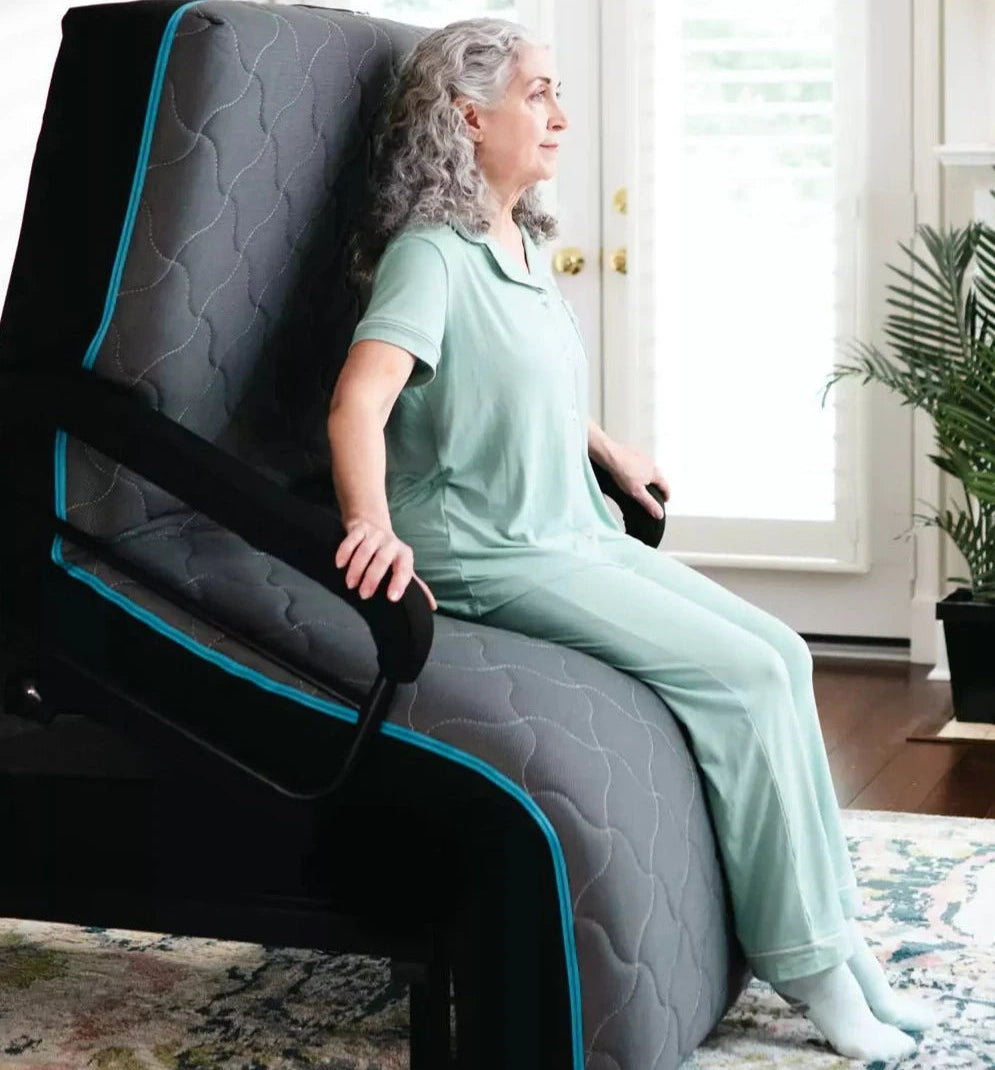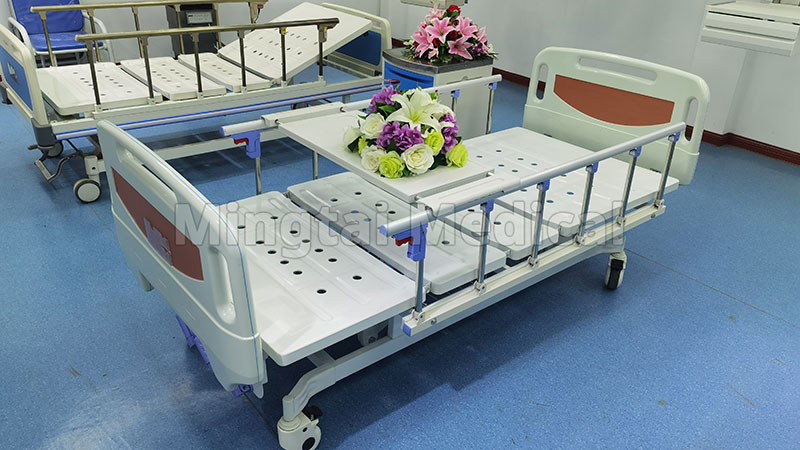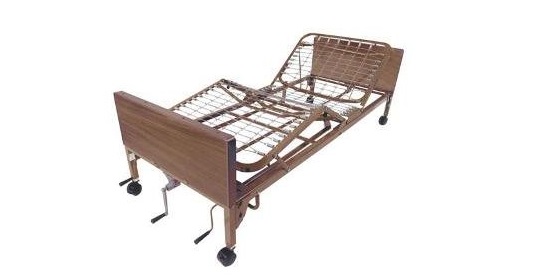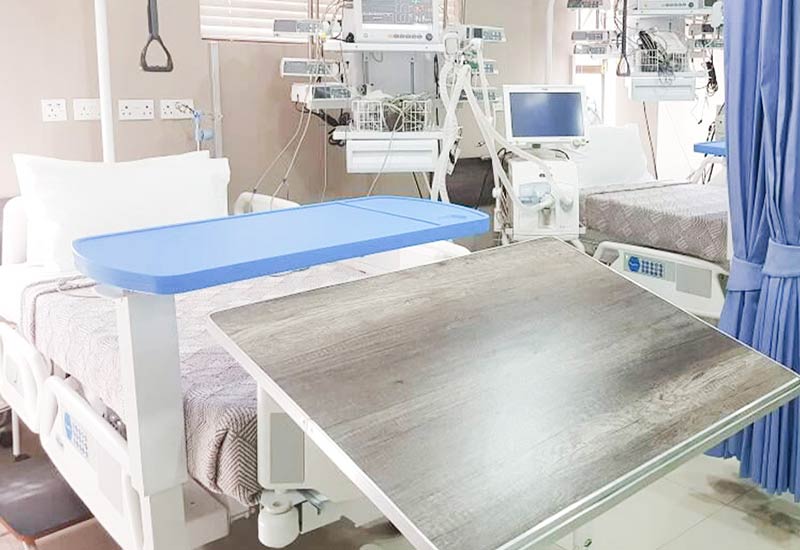Hospital Beds For Home Use Can Be Fun For Everyone
Table of ContentsMore About Hospital Beds For Home UseWhat Does Hospital Beds For Home Use Mean?The Only Guide to Hospital Beds For Home UseAll about Hospital Beds For Home UseNot known Facts About Hospital Beds For Home UseHospital Beds For Home Use Things To Know Before You BuyGetting The Hospital Beds For Home Use To Work
There are three primary types of healthcare facility beds: handbook, semi-electric, and fully-electric. These beds utilize hand cranks to adjust the bed's height and increase and reduce the head and the foot.
Semi-electric beds have an electrical motor to increase and reduce the head and foot parts of the bed. Patients and caretakers change the placing by pushing switches using a hand necklace. The height of the bed is readjusted by hand with a hand crank. Full-electric beds have an electrical motor that can raise the head and foot areas of the bed in addition to the whole elevation and positioning of the bed.
The smart Trick of Hospital Beds For Home Use That Nobody is Talking About
There are numerous types of healthcare facility beds, each designed to satisfy certain client demands. Here are some typical kinds: This is the most usual type of healthcare facility bed, created for general medical usage.
Reduced to the ground than a basic bed. This type of bed is created for bigger people, with a broader frame and higher weight ability than a typical bed.
This type of bed is created for critically ill clients who require open tracking and specialized clinical devices such as ventilators and infusion pumps. This kind of bed is designed for use during labor and distribution, with flexible placements and functions to support the mommy and infant throughout the birth process.
Indicators on Hospital Beds For Home Use You Should Know
Multiple feature and the devices execute expanding grip to different parts of the vertebra and the extremities without relocating the human body. These are simply a few examples of the sorts of healthcare facility beds available. The particular type of bed made use of will certainly depend on the patient's condition, clinical requirements, and other elements.
Below is things you need to know. A one-function hospital bed is a medical bed that enables a patient to relocate only the head or foot area up or down. A 2 function healthcare facility bed commonly refers to a sort of clinical bed that has 2 adjustable features to assist people in medical facilities or treatment centers.

An Unbiased View of Hospital Beds For Home Use
A 7-function ICU bed is a type of medical bed that supplies numerous adjustable functions to sustain seriously unwell patients in a critical care unit (ICU) (hospital beds for home use). The 7 features generally consist of: Backrest modification: The back-rest can be readjusted to numerous angles to assist the person stay up or relax comfortably
Elevation change: The bed can be elevated or reduced to make it much easier for patients to obtain in and out of bed, and for caregivers to provide treatment. Trendelenburg setting: The entire bed can be slanted to advertise blood flow and circulation in the body. Reverse Trendelenburg setting: The bed can additionally be tilted in the contrary direction to promote blood flow and circulation in the top body.
While more cost effective than electrical designs, these beds need exertion for adjustments. The main advantages of hands-on beds are their affordability and integrity, as they do not depend on electricity. Nevertheless, the need for manual effort can be a limitation in circumstances where fast modifications are required or where caretakers face physical difficulties.
Getting The Hospital Beds For Home Use To Work
They are appropriate for clients who call for marginal repositioning for comfort or clinical needs. Semi-electric medical facility beds offer a balance of handbook and electric controls. The head and foot sections are usually changed with electric controls, while the height is adjusted manually. These beds give an excellent happy medium between guidebook and fully electrical choices, offering convenience of use without the full expense of electric models.
Semi-electric beds are appropriate for people who require modest adjustments to the head and foot sections yet can manage without regular elevation adjustments. This makes them an economical option for those seeking convenience and ease without the demand for constant repositioning. Completely electric healthcare facility beds include electric controls for seamless adjustments to the elevation, head, and foot sections.
Specialized healthcare read the article facility beds, such as ICU beds, lasting treatment beds, and bariatric beds, are thoroughly created to deal with particular clinical demands. These beds offer tailored look after diverse client groups, boosting both results and convenience. In the following areas, we will explore the major types of specialty medical facility beds, detailing their details benefits and applications.
With years of experience in manufacturing electrical straight actuators - hospital beds for home use and close partnership with the health care industry, TiMOTION is well-positioned to offer reputable medical care services. Our vertically incorporated company takes care of every step of the production process, from layout to actuator setting up, ensuring we deliver phenomenal value and tailored options tailored to your particular needs
Hospital Beds For Home Use Fundamentals Explained

For more information about incorporating these modern technologies right into your items, contact us today. Additional analysis:.
Data is sourced from the Medicare Price Report.

The 30-Second Trick For Hospital Beds For Home Use
A hospital bed is a bed created specifically for clinical objectives. It is not only a place for individuals to rest, but likewise a platform for clinical procedures. Unlike common home beds, medical facility beds generally have flexible functions, which can help with medical personnel to make numerous modifications according to the needs of clients, such as altering the height, disposition, and support angle of the back and legs of the bed.